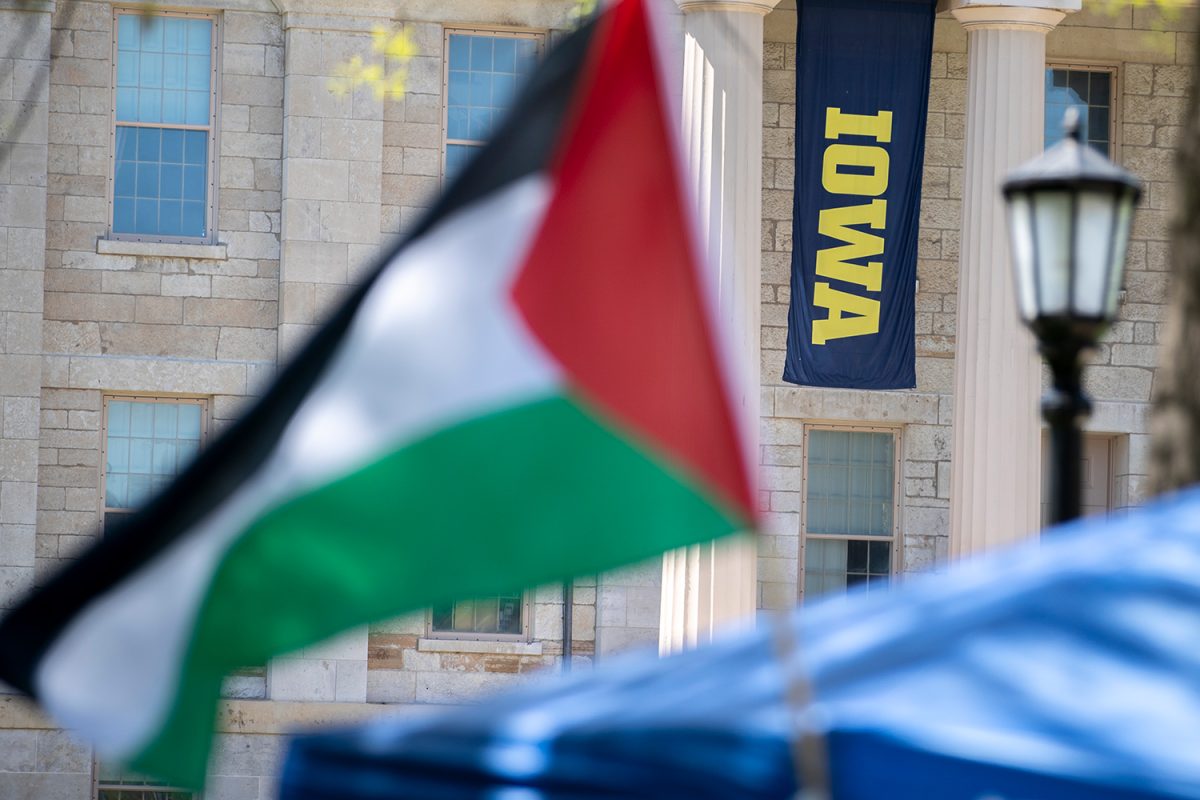The last decade has seen a steady resurgence in flare pants, psychedelic patterns, and crochet clothing, all reminiscent of an older era. But the infamous ‘60s and ‘70s were more than just a bold fashion statement fueled by acid trips.
They were a time of political activism — separation from the mainstream.
Although hippies weren’t as politically involved as the “beatniks” of earlier movements, they still prided themselves on the same core beliefs.
The hippie movement officially began in the San Francisco Bay area among the youth in the mid-1960s and quickly spread across the country.
The University of Iowa modeled these growing trends.
Students partook in protests, formed grassroots movements, and advocated for freedom of expression and departure from the mainstream. Particularly notable for the UI was the formation of the Gay Liberation Front, the first student organization of its kind to be recognized by a public university.
At the center of the movement was an anti-war sentiment driven by growing concerns about American involvement in the Vietnam War. Some consider it the first time in American history where our decision to engage in warfare was questioned.
Consequently, there was a drive to create more love and peace, often referred to as “flower power.”
Gen Z has arguably not been alive to witness a unified country. They were not alive or too young to recall the way people came together as a nation in the aftermath of 9/11 or Hurricane Katrina.
All they know is a divided and polarized country.
Despite this, many Gen Z Americans report feeling more hopeful rather than fearful for the future.
But is that optimism enough? Are we doing enough?
Having borne witness to the Israeli-Palestinian conflict, the Russia-Ukraine war, the war on terror, and countless other forms of warfare across the globe, Gen Z is no stranger to anti-war sentiments.
Recent protests against the war in Gaza may be the largest student movement of the 21st century, according to Robert Cohen, a professor of social studies and history at New York University.
Still, these protests have not yet reached the strength of anti-war protests from the ‘60s. More people need to be engaged to truly have an effect on the public officials who continue to fund and approve such violence.
It is our responsibility as citizens to hold those in positions of power accountable.
The hippie call to create more love and peace was also directed towards the civil, women’s, and gay rights movements, which aimed for equal treatment and acknowledgement across the board. Despite social strides made with the Civil Rights Act of 1964, the landmark decision in Obergefell v. Hodges, and greater gender equality, among others, there’s still a lot of work to be done.
With so many instances of police brutality and disproportionate violence against members of the LBGTQ+ community, it’s an understatement to say we could use more flower power.
In addition to anti-war sentiments and promotion of equality, the United States’ economy was stimulated by World War II, resulting in a never-before-seen level of consumerism. The hippies moved to reject this mass consumption.
With the influx in accessibility of online shopping and tireless promotions from the media, consumerism has only continued to rise.
Like the hippies, we must reject such blatant consumerism. Its effects are detrimental to the environment, producing exorbitant amounts of greenhouse gasses and waste that contribute to the dangerous effects of climate change.
Within the music industry lies potential to spread some of the “good vibes.” The hippie era was well known for its psychedelic tunes that brought people together en masse, such as with the Woodstock festival.
As Roy Ayers said, “The true beauty of music is that it connects people.”
Just look at the interconnected community that “Swifties” have created. Music has allowed us to come together and relate to one another in new ways that bring the possibility for greater change.
With the rise of pop icons like Chappell Roan, Sabrina Carpenter, and Charli XCX, there has been a new love and passion for music rekindled. The artists have found a way to bring joy but also honesty to music that encourages a deeper introspection into ourselves and our society.
Amid all the activism and hope, the United States continues to fund Israel’s genocide in Gaza. Conservatives seek to ban mention of the LBGTQ+ community. Climate change exponentially threatens the planet.
The parallels between now and the ‘60s and ‘70s are no mistake — no coincidence. It seems only natural for Gen Z to take up the reins and continue what was started.
Still, we must be careful not to glorify a time that was ripe with violence, hate, and racism. We must instead advocate for further strides in areas that threaten our safety, security, and well-being. We must not lose sight of the core values of activism, love, and peace.
In a time of increasing unrest and political polarization, we may be in need of a hippie revival.



